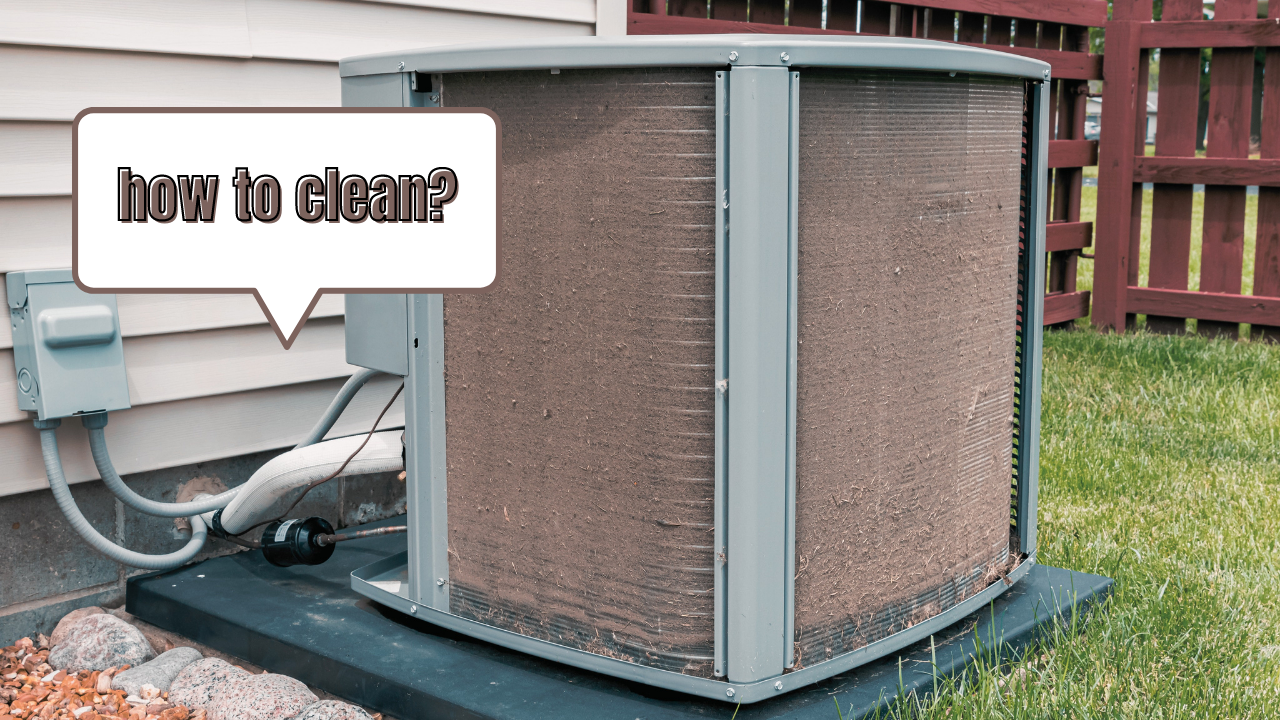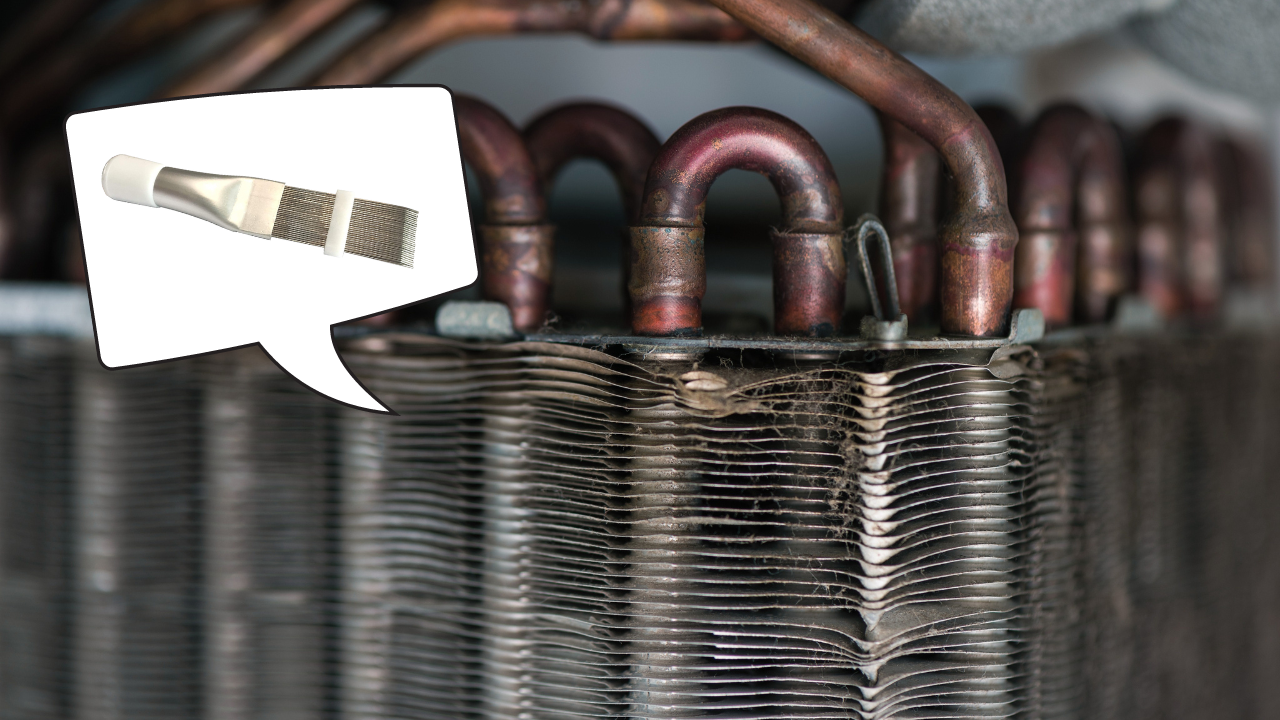The AC coils are often overlooked and ignored when it comes to annual maintenance services for your residential HVAC system. This is because the evaporator coils are out-of-sight that are locked inside the air handler enclosure or system cabinet.
If they get filthy, your AC system’s efficiency and performance will be affected. Homeowners who overlook the chore of cleaning their ac coils may deal with a breakdown or total system damage eventually. (Related: 7 Common Reasons Why Your Home AC is Blowing Warm Air)
So, if you’re looking to save some bucks and extend the life expectancy of your AC unit, it’s time to give AC coil cleaning a try. Here’s how you can do it.
6 Easy Steps on How to Clean Your AC Coils

Listed below are the steps you can follow in cleaning AC coils:
1. Locate the AC Coils
Since this chore involves cleaning your AC unit, you must access and reach the coils effectively. For instance, central air units have evaporator coils behind a removable panel that you need to unscrew.
Pro Tip: If you’re unsure, always check the operator manual that comes with the unit. You’ll likely find the diagram to locate the coils and the process of taking them apart.
Always turn off the AC, using the thermostat as you do so. It would be better to shut off the circuit breaker to be safe. Keep the panel and screws in a safe place so you won’t lose them in the process.
2. Assess the Condition of the Filthy Condenser Coils
Next, inspect the AC coils to see any visible debris such as spider webs or dead leaves, which you can remove by hand. Dust it off with a coil brush, a unique cleaning tool with stiff bristles. Guide the brush parallel to the coil fins to prevent them from accidental bending. Note that this process doesn’t need deep scrubbing, as you only need to remove any loose debris and hair.
3. Correct any Bent Fins using a Fin Comb (Coil Fin Tool)

If you notice several bent fins as you do the second step, you can use a fin comb parallel to the fins to strengthen them. You’ll see bent fins reflect light and take on a bright sheen on the coil. Doing this will enhance the performance of your AC unit as it expands the exposed surface area for the coils.
Important Note: If you do not want to buy a fin comb (which starts at $18), you can skip this. While correcting the bent fins is beyond the task of cleaning AC coils, it will significantly enhance the efficiency of the system.
4. Rinse the Coils with Water (Optional)
Because AC coils are made from aluminum or copper, they can be rinsed with water gently. You can spray water on your outdoor central AC unit coils but only do so on a low setting. When it comes to indoor units, rinse the coils using compressed air or a spray bottle. This helps you avoid a water puddle under your window. You can also opt for a "no-rinse" AC coil cleaner if you have the extra budget.
5. Apply the AC Coil Cleaner
Commercial coil cleaners are safe on either aluminum or copper coils– but it would be best to check the label first.
Always give the can a shake before spraying it into the evaporator coils if you want to use a foaming coil cleaner. This will immediately foam on the surface, lifting off the dirt and grime. Let this AC coil cleaner soak for about 5 to 10 minutes.
6. Rinse the AC Coil Cleaner (if needed)
Read the cleanser label, and if it states to rinse off the foaming cleanser after application, you need to do so. Ensure to rinse it off to avoid leaving any traces thoroughly. According to experts, an annual cleaning for your AC coils is sufficient. This is best done during the warmer months of the year (spring), as the summer months will strain your air conditioning system.
Common Techniques in Cleaning AC Coils
Now that you know the how-to’s in cleaning the AC coils, here are some techniques you can try out:
By Brush
A brush can remove faint amounts of dirt in your evaporator coils, allowing better control of your pressure on specific areas. You can use the brush directly on the AC coils to sweep all grime away and scrub the site if the dirt is too stubborn to remove.
Pro Tip: Ideally, use a soft brush with gentle bristles to avoid damaging the fins.
By Compressed Air
Compressed air removes dirt on the coils (if it's not a heavy build-up). This blows off the dirt off the evaporator coil efficiently. Direct the compressed air in the opposite direction of the normal airflow across the coil’s surface. Don’t forget to wear adequate eye protection for safety and maintain consistent airflow. For added convenience, you can also utilize a shop vac to clean up all the dislodged debris.
By Commercial Cleaners
Fortunately, there is a wide selection of AC coil cleaners in the market. Once you’ve chosen your cleaner of choice, always follow the instructions on the label. Reapply as often as necessary until you’re 100% confident the coils are clean and free of build-up.
By a Soapy Mix (Water and Mild Detergent)
Homeowners who do not want to buy a commercial cleaner can use a soapy mix of mild detergent and water to clean the AC coils. Spray the mixture onto the coils and allow it to soak for a few minutes to remove the visible dirt and debris effectively. You can wipe away any traces of loosened material using a rag or a soft brush.
By Heavy-duty Cleaning Chemicals and Equipment
AC evaporator coils that are filthy may need heavy-duty chemicals and equipment such as a pressure washer and a steam cleaner. Beyond regular cleaning, this may require you to take apart the AC unit to give it a thorough cleaning before reassembling it again. It would be best to contact a local HVAC professional who can do the job for you instead of making a DIY attempt. The pros will have the correct cleaning supplies, equipment, and experience to ensure your AC system won’t be damaged.
Frequently Asked Questions (FAQs)
Are AC coils important?
The effectiveness of your AC unit will be affected if you have dirty coils. Layers of dust and debris may impact the heat exchange process, which will lead to costly repairs and a reduced AC lifespan in the long run. On the other hand, cleaning the coils will help ensure the longevity of your AC unit. Other benefits are better indoor air quality and reduced energy costs.
What problems occur when the AC condenser and evaporator coils get dirty?
Here are some problems you can expect with dirty AC coils: ice build-up, poor cooling capacity, inadequate heat transfer, and higher energy consumption.
How do AC coils get dirty?
Dust and other pollutants naturally find their way and accumulate on the coils’ surfaces. So if you’ve been ignoring the chore of cleaning the AC filters, this may lead to excess dirt build-up on the evaporator coils. Meanwhile, outdoor coils can be dirty if located in a filthy environment or surrounded by shrubs and other greenery. The fallen leaves may enter the condenser and clog the AC coils.
How often should you clean the AC coils?
Once a year is enough when it comes to cleaning your AC coils. But, you may want to consider clearing the coils of dust and debris once every 3 to 4 months.
